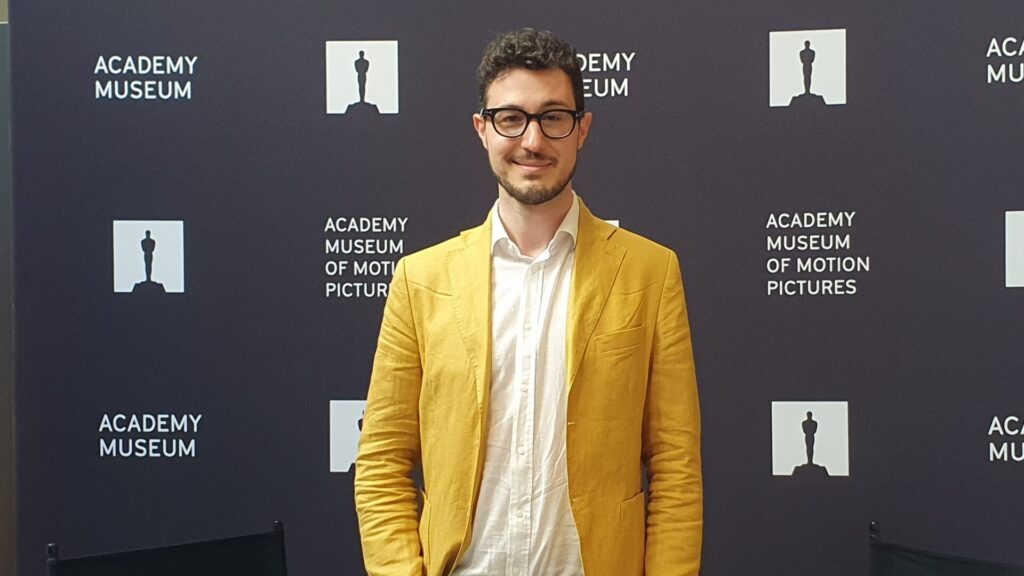We met Tre’vell Anderson for a special conversation in partnership with the Los Angeles LGBT Center held at the Academy Museum in the Ted Mann Lobby.
A groundbreaking look at the history of transgender representation in TV and film, by an of-the-moment and in-demand culture reporter. We See Each Other is a personal history of trans visibility since the beginning of moving images. A literary reckoning, it unearths a transcestry that’s long existed in plain sight and in the shadows of history’s annals, and further contextualizes our present moment of increased representation.
The films and television shows that Anderson covers include: Midnight in the Garden of Good and Evil (1997), Psycho (1960), Holiday Heart (2000), Boy’s Don’t Cry (1999), America’s Next Top Model, Some Like It Hot (1959), Survivor, Tangerine (2015), Pose, RuPaul’s Drag Race, and much more.

In the heart of the cinematic capital, the Academy Museum of Motion Pictures became a forum for meaningful discourse and advocacy during a captivating conversation with esteemed journalist and cultural critic, Tre’vell Anderson. As a journalist from Italy, I had the privilege of attending this enlightening event, which delved into issues of representation, diversity, and the power of storytelling to shape society.
Tre’vell Anderson, known for their insightful commentary and unwavering commitment to amplifying marginalized voices, took center stage at the Academy Museum to engage in a dialogue that resonated far beyond the confines of its walls. With thought-provoking questions and poignant anecdotes, Anderson navigated through the complexities of representation in cinema, shedding light on both progress made and the work yet to be done.
The conversation touched upon a myriad of topics, from the importance of authentic storytelling to the systemic barriers that continue to hinder underrepresented communities in the film industry. Through their eloquence and passion, Anderson challenged the audience to confront their own biases and to strive for greater inclusivity both on and off the screen.
But perhaps the most inspiring aspect of the conversation was Anderson’s unwavering optimism and resilience in the face of adversity. With unwavering conviction, they emphasized the transformative power of storytelling to bridge divides, foster empathy, and effect meaningful change in society—a sentiment that reverberated throughout the audience.

As the conversation came to a close, and the applause filled the hallowed halls of the Academy Museum, I couldn’t help but feel a profound sense of gratitude for having been part of such a thought-provoking discussion. Through their words, Tre’vell Anderson not only challenged and inspired but also reaffirmed the importance of advocacy and representation in shaping the future of cinema.
From the engaging conversation with Tre’vell Anderson to the invaluable insights gained, it was a celebration of diversity, advocacy, and the enduring power of cinema to spark meaningful change in the world.


Average Rating